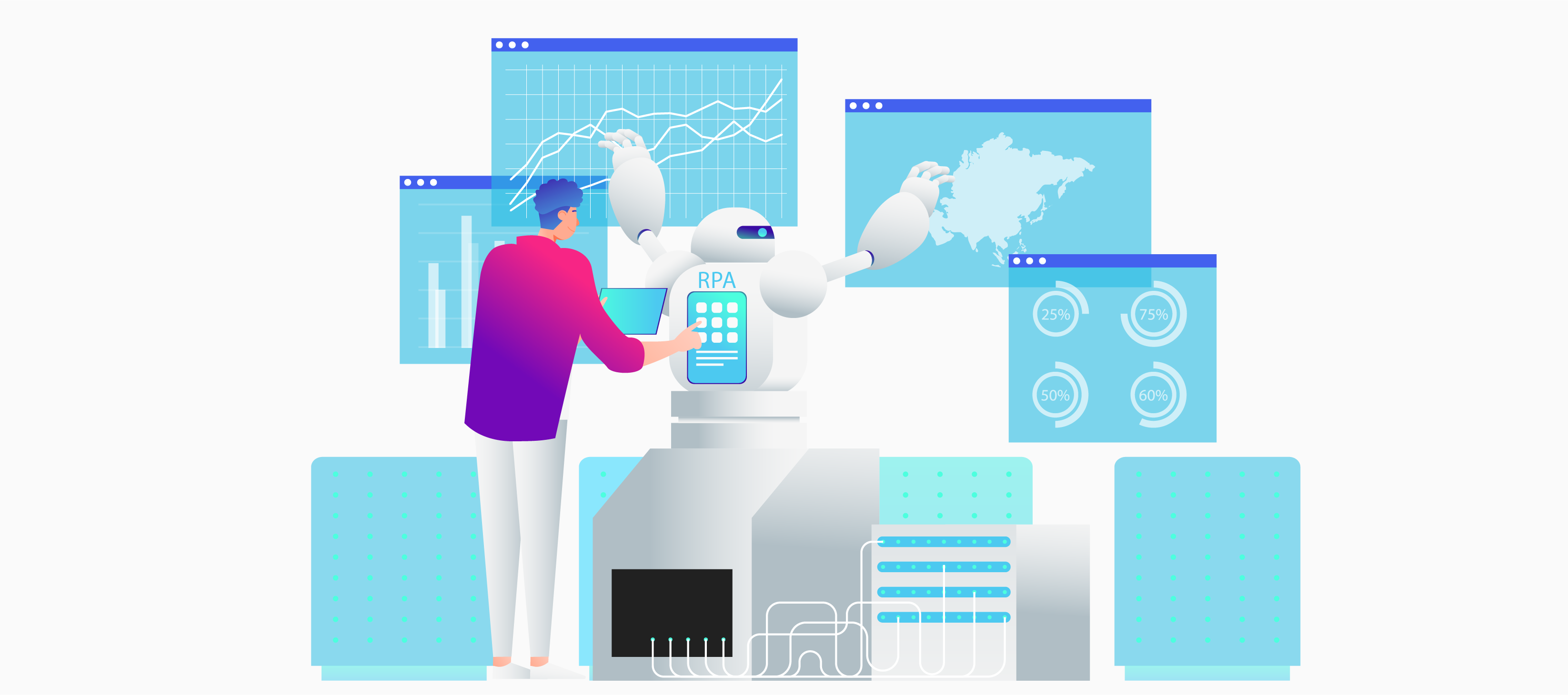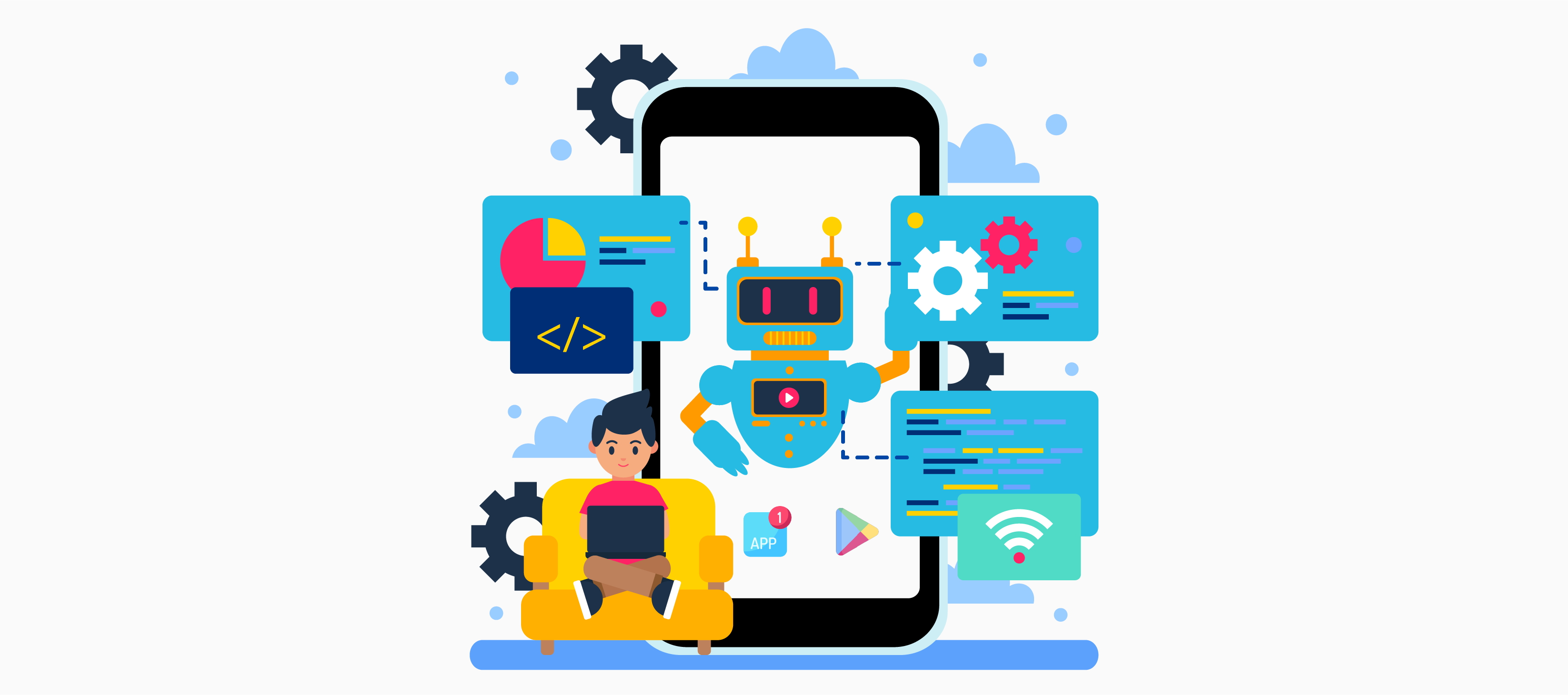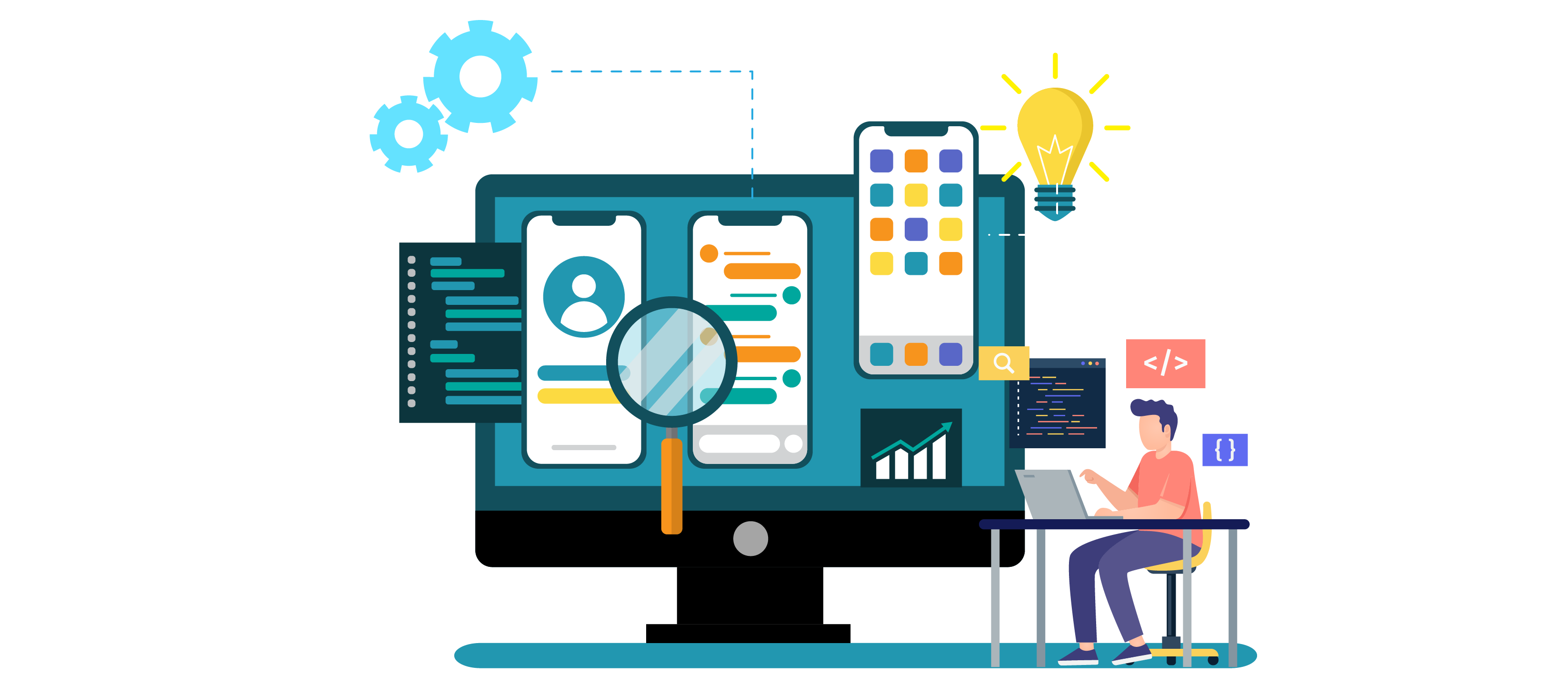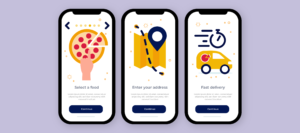Do you think AI mobile app development is a futuristic concept? Think again. This “future” has already arrived, and those who have embraced it are reaping the benefits. Many forward-thinking individuals and businesses have embraced this technology and launched a plethora of AI-powered mobile apps.
Granted, not all these apps are flawless, and some may have limited functionality. However, they continue to generate substantial profits for their owners, proving the market’s appetite for AI solutions. Furthermore, the industry is rapidly becoming saturated with competitors. According to Statista, the global AI software market is projected to grow exponentially and reach a staggering $126 billion by 2025.
So, what does this mean for you?
It signifies that if you want to thrive in any market today, incorporating custom mobile app development services is no longer optional; it is imperative. Your pathway to success lies in conceiving an exceptional app idea that stands out from the crowd.
We have curated a collection of the most captivating AI mobile app ideas to assist you in this endeavour. These ideas have been meticulously crafted using our AI-powered research tool, ensuring they align with the latest market trends and user demands.
AI Application Development: An Overview

AI application development involves leveraging algorithms, machine learning, and deep learning techniques to build software systems that can understand, reason, and learn from data. Developers utilize programming languages such as Python, R, and Java, along with frameworks like Tensor Flow and PyTorch, to train AI models on vast amounts of data. These models then enable applications to perform complex tasks, such as natural language processing, image recognition, and predictive analytics.
In industries like healthcare, AI applications help diagnose diseases, analyze medical images, and assist in surgical procedures. In finance, AI algorithms can detect fraudulent transactions and optimize investment strategies. Moreover, chatbots powered by AI can provide instant responses and personalized assistance in customer service.
The development process involves several key steps: data collection and preprocessing, model training and validation, and deployment and optimization. Developers must also ensure AI’s ethical and responsible use, addressing concerns like bias, privacy, and security.
The development of AI applications involves several key steps:
- Problem identification: Identifying a specific problem or task that can benefit from AI capabilities. This could include image recognition, natural language processing, predictive analytics, or recommendation systems.
- Data collection and preparation: Gather relevant data to train the AI model. This may involve obtaining and cleaning datasets, labelling data for supervised learning, and ensuring data quality and integrity.
- Model selection and training: Choosing the appropriate AI model or algorithm best suits the problem. This could involve machine learning, deep learning, or reinforcement learning. The selected model is then trained using the collected data to make accurate predictions or decisions.
- Development and integration: Developing the AI application by implementing the trained model into a software framework or platform. This step involves writing the code, integrating it with other systems or APIs, and building a user-friendly interface.
- Testing and validation: Thoroughly testing the AI application to ensure it performs as intended. This includes verifying its accuracy, evaluating its performance against predefined metrics, and identifying any bugs or issues that must be addressed.
- Deployment and maintenance: Deploying the AI application to a production environment or making it available to end-users. Ongoing maintenance is crucial to monitor the application’s performance, update the model as new data becomes available, and address emerging issues or user feedback.
Best AI Mobile App Ideas

1. AI-Based eCommerce App:
Boost your online eCommerce store with an AI-based app, a game-changing decision. Say goodbye to the exhausting search for product images on Google and social media. With AI in eCommerce, streamline the user experience and gather valuable business and user data for smarter decisions.
Leverage cutting-edge tools like Caffe2 and OpenCV for automated online device recognition through AI and ML development. Empower customers to match products effortlessly by colour, size, pattern, and brand.
Look no further than Amazon’s eCommerce mobile app, a prime example of AI’s prowess. Machine learning drives improved product selection, UX, and logistics, enhancing customer retention and enabling targeted marketing and advertising. Take your store to new heights with AI’s transformative capabilities.
2. AI-Based Language Learning App:
With an AI-based language learning app, users can receive personalized language lessons and practice exercises tailored to their proficiency level. The app can utilize natural language processing to provide real-time feedback on pronunciation and grammar. AI algorithms can adapt the learning content based on individual strengths and weaknesses, ensuring a customized and effective language learning experience.
3. AI-Driven Chatbot:
Chatbots have become a cornerstone of AI mobile app development, offering unparalleled benefits for businesses. These versatile applications educate, guide, and deliver exceptional customer service. Say goodbye to lengthy customer care calls, as chatbots provide instant solutions and support, ensuring a seamless user experience. Businesses increasingly recognize the value of AI-powered chatbots, which enhance customer interactions and satisfaction. Incorporating these sought-after chatbots into your app can revolutionize your customer engagement and take your business to new heights.
4. AI-Based Weather Forecast App:
In the post-pandemic era, the demand for accurate weather information has surged as travel resumes and people eagerly seek new destinations. AI and ML-powered weather forecasting apps now offer precise climate insights for desired locations. Innovative applications like NowCast leverage machine learning algorithms to predict weather forecasts, ensuring efficient and reliable climate reports. By harnessing AI capabilities, these apps gather real-time data, enabling users to stay informed about any changes in weather conditions. Whether planning a vacation or staying updated, AI and ML-based weather forecasting apps provide the tools to make informed decisions and enhance travel experiences.
5. AI-Based Fitness App:
An AI fitness app offers a convenient solution for staying fit from your home. With pre-recorded workout videos and personalized program options, it uses AI to tailor exercises based on user body measurements, fitness routines, and goals. This technology ensures users maintain correct posture during workouts, reducing the risk of injury. By harnessing the power of artificial intelligence, the app delivers an interactive fitness experience that keeps users motivated, provides real-time feedback, and adapts to their progress. Develop an AI-based fitness app to stay fit with precision and guidance, courtesy of an AI fitness app that brings the gym to your fingertips.
6. AI-Based Content Creator App:
An AI-based content creator app is a game-changer for businesses lacking resources to hire content writers. It empowers them to effortlessly generate product descriptions, summaries, and business announcements. By simply entering details, users can obtain concise descriptions or synopses. To stand out, consider integrating features like spell-checking and plagiarism detection. This app saves time and costs and ensures high-quality, original content. Unlock the potential of AI to revolutionize content creation and propel businesses forward. Say goodbye to the limitations of traditional content writing and embrace the convenience and innovation of AI-based content creation.
7. AI-Based Healthcare App:
An AI-based healthcare app can revolutionize the way users manage their health. It can analyze personal health data, provide personalized health recommendations, and offer virtual consultations with AI-driven medical professionals. The app can also utilize machine learning algorithms to predict health risks and offer preventive measures, improving overall well-being and empowering users to take proactive steps towards a healthier lifestyle.
8. AI-Based Food Delivery Apps:
AI-based food delivery apps revolutionize the food ordering process, ensuring convenience for customers. With advanced AI technology, restaurant owners can effortlessly manage operations, from assigning delivery partners to offering estimated delivery times and resolving customer inquiries. Developing an AI-powered food delivery app is a game-changer for businesses in the food sector, significantly improving customer retention rates and overall service quality. Embrace the future of food delivery with AI integration.
9. AI-Based Travel App:
An AI-based travel app can transform how users plan and experience their journeys. It can utilize machine learning algorithms to curate personalized travel itineraries, suggest activities based on user preferences, and offer real-time recommendations for attractions, restaurants, and accommodations. Additionally, AI can assist in language translation and currency conversion and provide intelligent travel assistance throughout the trip, making travel more convenient and enriching.
10. AI Chatbots:
AI chatbots have gained immense popularity across various industries. They can be integrated into existing apps or deployed as standalone conversational interfaces to provide instant customer support, answer queries, and assist with transactions. Through natural language processing and machine learning, chatbots can understand user intent, provide accurate responses, and continuously improve their performance over time, delivering efficient and personalized customer service.
What Makes AI App Development Unique From Other App Development?
| AI App Development | Other App Development | |
|
Purpose |
Harnesses artificial intelligence and machine learning techniques to create intelligent applications that can understand, reason, and learn from data. | Focuses on developing applications without AI capabilities. The primary goal is to provide functionality and user experience. |
|
Data |
Requires large amounts of diverse and labeled data for training AI models. | Relies on structured and organized data for application development. |
|
Algorithms |
Utilizes complex algorithms like deep learning, natural language processing, and predictive analytics to process data and make intelligent decisions. | Primarily employs conventional algorithms and logic to execute application functionalities. |
|
Automation |
Can automate complex tasks and make decisions based on patterns and data analysis. | Primarily focuses on automating repetitive tasks but may not involve advanced decision-making based on data analysis. |
|
Complexity |
Involves complex model training, validation, and optimization processes. Requires expertise in AI and machine learning. | Generally less complex and more focused on UI/UX design, backend development, and integration with existing systems. |
|
Industries |
Widely applicable across industries such as healthcare, finance, customer service, and more. | Applicable to various industries depending on specific functionalities, but not necessarily reliant on AI capabilities. |
|
Advancements |
Constantly evolving with new algorithms, frameworks, and techniques emerging regularly. | Advances with new technologies, features, and user experience trends. May not see rapid changes related to AI. |
|
Impact |
Can transform industries by automating processes, improving decision-making, and enhancing user experiences. | Enhances efficiency and convenience, but may not have transformative effects on industries. |
|
Ethical Considerations |
Requires addressing concerns like bias, privacy, and security in AI algorithms and data usage. | Focuses on data privacy and security, but may not have the same level of ethical considerations related to AI. |
Concluding Thoughts
Now that you have gained insights into the compelling reasons and implementation strategies for mobile app development, it is crucial to emphasize the importance of integrating cutting-edge performance and uncompromising quality through the powerful combination of Artificial Intelligence (AI) and Machine Learning (ML). The seamless integration of AI and ML is undeniably the future of mobile app advancement, presenting unparalleled opportunities for innovation and enhanced user experiences.
If you are still grappling with any lingering doubts or questions, we invite you to contact us. Our team of experts is readily available to address your queries and provide further clarity. Whether you aspire to develop a new app that embodies the latest advancements in technology or seek to upgrade your existing app with state-of-the-art features, it is imperative to collaborate with an AI and ML development company that deeply understands the evolving market demands. Together, we can ensure that your app remains at the forefront of the dynamic technological landscape.
FAQs
Question 1: What is AI application development?
AI application development involves utilizing artificial intelligence (AI) technologies, such as machine learning and deep learning, to create software applications that can understand, reason, and learn from data. It focuses on developing intelligent solutions to automate tasks, make predictions, and enhance user experiences.
Question 2: How does AI application development work?
AI application development involves collecting and preprocessing data, training AI models using algorithms and frameworks, and deploying the models into software applications. The models learn from the data to perform tasks like natural language processing, image recognition, or predictive analytics, enabling the applications to make intelligent decisions.
Question 3: What programming languages and frameworks are used in AI application development?
Common programming languages for AI application development include Python, R, and Java. Frameworks like TensorFlow, PyTorch, and sci-kit-learn are often used for building and training AI models. These languages and frameworks provide robust tools and libraries for implementing AI algorithms.
Question 4: What are the industries that benefit from AI application development?
AI application development has diverse applications across industries. It is used in healthcare for diagnosis and medical imaging, finance for fraud detection and investment optimization, customer service for chatbots and personalization, and many more sectors where intelligent decision-making and automation are valuable.
Question 5: What are the challenges in AI application development?
Challenges in AI application development include:
- Acquiring and preprocessing high-quality data.
- Selecting the right algorithms and models.
- Addressing issues like bias and ethics.
- Continuously updating and improving the models based on evolving needs and advancements in AI technology.





